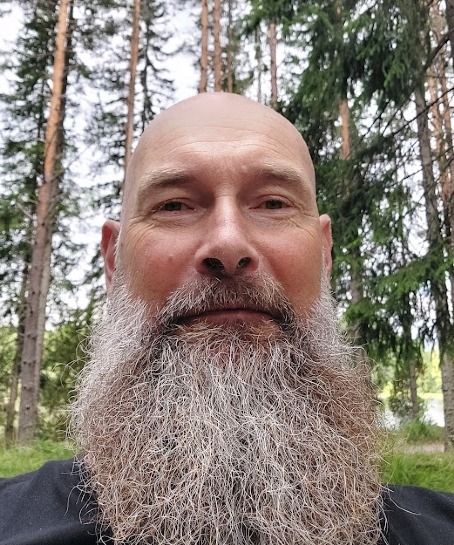Haal de ecoloog uit de ivoren toren

Dat we in Nederland op het gebied van natuurbeheer en biodiversiteit voor grote uitdagingen staan is duidelijk. De verschillende dossiers stapelen zich op: het stikstofdossier, klimaatdossier, de wolvendiscussie en zelfs de huiskat ontkomt niet aan onderzoeken en discussies. Telkens weer is de conclusie van de onderzoeken dat het slechter gaat met de natuur en dat de biodiversiteit achteruit holt. De polarisatie in de samenleving helpt daarnaast niet mee bij het aangaan van deze uitdagingen. Problemen worden veelal zwart/wit geschetst terwijl de waarheid in het midden ligt.
Volgens ecoloog Chris Smit is het daarom tijd dat de wetenschapper uit de ivoren toren komt en in plaats van de problematiek aan te tonen ook mee gaat werken aan mogelijke oplossingen. 27 september spreekt hij zijn oratie uit.
Opgetekend door Jaap Ploeger, Corporate Communicatie RUG
Groot probleem
‘We hebben een groot probleem in Nederland als het gaat om natuur. Stapels onderzoeken van ecologen tonen telkens weer aan dat de biodiversiteit verslechtert, dat stikstofdeposities te hoog zijn en dat we inmiddels van een flinke crisis kunnen spreken. Dit is niets nieuws. Maar onderzoeken worden gepubliceerd, de ecoloog doet een praatje, steekt een belerende vinger op en trekt zich dan weer terug in de ivoren toren om zich weer te richten op fundamenteel onderzoek. Het probleem blijft echter bestaan en nu blijkt ook wel dat al die onderzoeksresultaten nog niet veel uithalen. We moeten als ecologen dus anders te werk gaan en meer uit die ivoren toren komen, waaronder ikzelf.’
De wolf
‘Daarnaast helpt de toenemende polarisatie niet mee om tot oplossingen en nader tot elkaar te komen. Neem het voorbeeld van de wolf. Dat is een enorm wespennest van voor- en tegenstanders. Daar zou met veel meer empathie naar beide standpunten gekeken moeten worden. De boer die zijn schapen dood in de wei ziet liggen heeft perspectief nodig. En de angst voor de wolf is nu eenmaal aanwezig in de maatschappij; die neem je niet weg met cijfers. En aan de andere kant: die wolf is een blijvertje, en we zullen moeten leren samenleven.
Het blijkt ook dat de meeste kennis over het gedrag van de wolf is opgedaan in landen waar veel minder mensen wonen. Die resultaten kun je dus niet zomaar kopiëren naar het drukbevolkte en natuurarmere Nederland. Het onderzoek sluit dus niet goed aan bij de behoefte van de maatschappij. En dat moet anders vind ik.’
Ecologen zouden samen met overheden, beheerders en beleidsmakers een overkoepelende rol kunnen spelen door gezamenlijk geformuleerd onderzoek en beleid, zodat niet elke provincie met eigen oplossingen komt, zoals nu wel het geval is. We zien dat de staatssecretaris nu een goede stap lijkt te nemen in die richting met een landelijk informatiepunt en een professioneel wolf-hekken team.
Werk samen zowel inter- als transdisciplinair
‘Ecologen zouden in Nederland samen met beheerders en beleidsmakers moeten onderzoeken hoe en op welke manier we die wolf in Nederland een plek kunnen geven en als zich problemen voordoen hoe te handelen. Dus je betrekt overheden en andere belanghebbenden als natuurorganisaties, boeren en beheerders al vanaf de start bij het onderzoek zodat ook de praktische en meer beleidsmatige vragen worden meegenomen. Op die manier kunnen zij direct invloed uitoefenen op de vraagstukken.
Dat geldt niet alleen in het geval van de wolf, maar ook bij de stikstofaanpak of bijvoorbeeld de Wadden. Dat gebied beslaat meer dan alleen het Nederlandse deel. Daar moet zelfs transnationaal over nagedacht worden, zodat niet elke beheerder, provincie of land tegenstrijdig natuurbeleid voert in een en hetzelfde ecosysteem. Wil je soortenbehoud in de kwelders, of gebruik je het voor co2 opslag? En waar en op welke schaal? Een gezamenlijke aanpak is dan van belang.’
Hoop
‘Ik houd goede hoop dat we de negatieve trends kunnen ombuigen. Neem de Onlanden, het natuur-, maar tevens waterbergingsgebied van Groningen en Drenthe. Daar is in korte tijd heel veel natuur ontwikkeld en zijn veel spectaculaire diersoorten en planten teruggekeerd. Beleidsmatig opgezet als een waterbergingsgebied in tijden van veel neerslag, maar vanuit ecologisch standpunt nu een schitterend natuurgebied. Op die manier kan de ecoloog samen met de beleidsmaker een verschil maken door niet alleen de problemen met onderzoek aan te tonen maar ook mee te denken, waar belanghebbenden én de natuur baat bij hebben.’
Lees meer
Meer nieuws
-
17 februari 2026
De lange zoektocht naar nieuwe fysica
-
10 februari 2026
Waarom slechts een klein aantal planeten geschikt is voor leven
